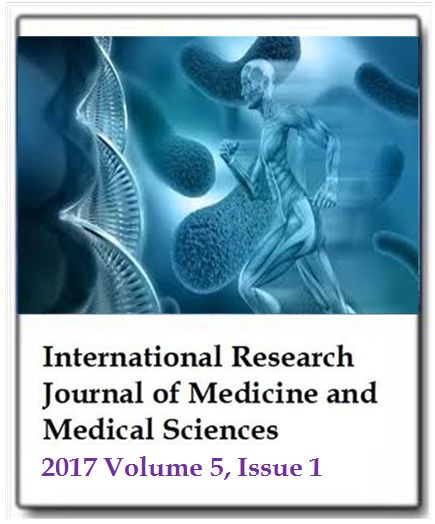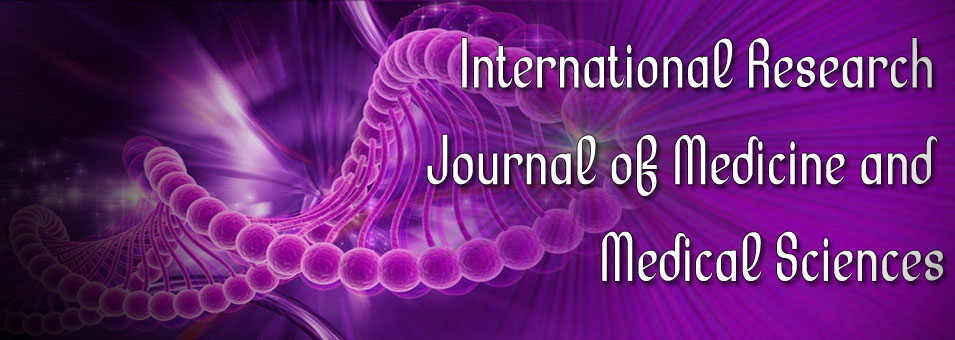Interleukin (IL)-1α, IL–7 and IL–13 profile among individuals with Schistosoma haematobium infection in Ewan Community, Edo State, Nigeria
Imarenezor, E. P. K., Iyamu, M. I. and Nmorsi, O. P. G.International Research Journal of Medicine and Medical Sciences
Published: March 30 2017
Volume 5, Issue 1
Pages 9-13
Abstract
Schistosomiasis is an endemic parasitic disease exclusively located in tropical Africa, Asia and North America. The infection processes and indeed the control of this infection partly require an understanding of cytokine immune responses to the disease. This study therefore aims at determining the profiles of cytokines (interleukins) (IL) (IL-1α, IL-7 and IL–13) among schistosomes positive individuals. The investigation was carried out in Ewan in Edo State, Nigeria. Sera from 35 seropositive subjects were categorized as lightly and heavily positive. Also, 16 of these 35 seropositive subjects demonstrated parasites in the blood and as a result were further grouped into lightly infected (n = 4) and heavily infected (n = 12) of schistosomiasis based on the demonstration of Schistosoma haematobium infection. Sera of seropositive subjects were subjected to IL-1α, IL-7 and IL-13 assays. In the serum, IL-1α levels were significantly higher among the heavily positive subjects than the control subjects (p < 0.05). Conversely, depressed level of IL-1α was seen for schistosomiasis lightly positive subjects (p < 0.001). IL-7 level was significantly lower in heavily positive individuals than control subjects and lightly positive IL-7 level was significantly depressed (p < 0.05). There was no significant difference in IL-13 levels among schistosomes infected individuals and their non-infected counterparts. The depressed levels of serum IL-1α and IL -7 should serve as markers for individuals with lightly positive schistosomiasis infection in Ewan, Edo State, Nigeria.
Keywords: Interleukins, profile, schistosomes, Ewan Community.
Full Text PDF
